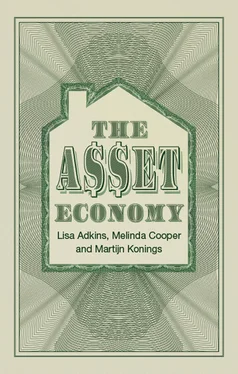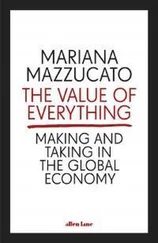The political stakes will be even higher this time. If the post-Covid-19 era sees another wave of asset inflation, and if home ownership remains the only real – but less and less realistic – way for ordinary people to participate in that logic, the next decade will see a continuation of the social and political polarization that has been such a defining feature of the past decade.
At the start of 2019, The Economist coined the term ‘millennial socialism’ to refer to the growth of strong, critical and left-wing sentiments in a generation that until recently was primarily known for its sense of entitlement and its obsession with social media. It noted that a large percentage of young people hold a favourable view of socialism and that ‘[i]n the primaries in 2016 more young folk voted for Bernie Sanders than for Hillary Clinton and Donald Trump combined’. The Economist acknowledged that some of these millennials may have good reasons for their political sentiments. But it immediately went on to declare that understanding this trend shouldn’t lead us to justify or legitimate it – socialism remains as dangerous as, according to the magazine, it always has been. It views millennial socialism as being too ‘pessimistic’ and as wanting things that are ‘politically dangerous’. While voicing some qualified appreciation for millennial socialism’s ‘refreshing willingness to challenge the status quo’, The Economist strongly denounced its naïve ‘faith in the incorruptibility of collective action’. The Sydney Morning Herald followed up in the same month with an opinion piece arguing that while millennial socialism has roots in millennials’ ‘rising anxiety about their economic prospects’ (and in particular the virtual impossibility of ever attaining home ownership in the country’s largest cities), as a political choice it seemed to reflect above all ignorance and the lack of memory of the horrors of Communism (Switzer 2019).
The attention that the millennial generation’s political positioning has received from establishment media outlets is testimony to an emergent reality. But the framing of this political shift in terms of a generational schism would seem to rest on flimsy conceptual foundations. Indeed, while generational analysis may be making a return to public debate, among social scientists it has largely gone out of fashion. The idea that being born around the same time or experiencing the same historical events at the same age produces a natural solidarity or a similar experience of life is now considered overly simplistic. It is typically seen as too abstracted from a range of other structural inequalities that would seem to have far greater bearing on people’s position in the social hierarchy. Just as there are poor baby boomers, so there are fabulously wealthy millennials.
Yet some element of generational distinction seems to be playing an undeniable role in the logic of the present. So, what do we make of this? A useful direction here was indicated in the Financial Times (2019), which is always more willing to put critical analysis to work for the preservation of capitalism. Featuring a picture of economist and former chair of the US Federal Reserve Ben Bernanke juxtaposed with one of millennial Democratic politician Alexandria Ocasio-Cortez, one of its opinion pieces stated that ‘Quantitative Easing was the Father of Millennial Socialism’. Quantitative easing is a policy that central banks in many countries have relied on over the past decade to rekindle economic growth and escape from the Great Recession that ensued in the wake of the financial crisis of 2007–8. It works on the idea that, if central banks push large amounts of liquidity into the financial system, banks and other financial institutions will lend more liberally and so spur investment, growth and employment. But one of the main points of critique of these policies has been that this transmission mechanism is not in fact working very well, and that in practice quantitative easing has propped up the values of financial assets without translating into higher rates of employment and growth (Blyth 2013; Gane 2015). That is to say, quantitative easing is often seen as working to enrich the owners of financial assets (often pejoratively referred to as ‘rentiers’) at the expense of those who have to work for a living.
The same Financial Times piece continued with an observation on the generational effects of property prices. Noting the dramatic divergence between wages and property prices in large cities over the past decade (not just in New York and San Francisco but also in many smaller urban centres), it concluded: ‘The young are locked out.’ In almost all large Western urban centres, property prices have reached levels that make renting very expensive and put home ownership effectively out of reach for many. Although housing is by no means the only asset that plays an important role in the contemporary political economy, it plays a central role in the story that we tell in the following pages. Property inflation in large urban centres is the linchpin of a new logic of inequality.
Property price inflation is not limited to the past decade. In major cities across the Western world property prices have been on the rise for several decades. If this problem had been limited to the past decade, we would just be looking at a particularly inappropriate set of policies conceived by incompetent or corrupt elites. That would be bad enough, but we might reasonably hope that greater awareness of the issue would lead to democratic pushback and a reversal of quantitative easing policies. But the problem is of longer standing and reaches deeper into the fabric of social life. As we will see in the following pages, quantitative easing is only a more explicit version of financial policies that have been pursued since the 1980s that aim to make asset ownership profitable. We should also not be too quick to cast this as a project that aimed to enrich a tiny elite at the expense of the rest of the population, as the current focus on the runaway wealth of the 1% would suggest. The phenomenon of the 1% pulling away from the rest of society is all too real, but it is so thorny and intractable precisely because it is anchored in a wider institutional and social configuration that has generated particular constituencies with a vested interest in these sorts of policies.
It is therefore important here not to reach too quickly for a critique of ‘rentierism’. It may be a useful means of expressing moral opprobrium and voicing concern about a world that allows some to receive income without having to work for it, but its analytical edge is blunt. The critique of rentierism is long-standing. It has for many years been a favourite tool of the left, whether of middle-of-the-road progressive reformists, labour politics, or more radical currents. Indeed, it had been one of John Maynard Keynes’ stated concerns to ensure the ‘euthanasia of the rentier’ (Keynes 1936: 376), and it seemed to many that mid-twentieth-century capitalism had delivered precisely this, bringing capitalism in line with the needs of working people. But the past decades have done much to erode this sense that capital can work to advance the interests of society as a whole. Left-wing critics have relied on the critique of unproductive rentierism to criticize neoliberalism since its inception (Duménil & Lévy 2005; Onaran et al. 2011; Standing 2016), but in recent years the critique of rentierism has returned to mainstream public debate with Thomas Piketty’s (2014) book Capital in the Twenty-First Century .
Piketty sees the growth of inequality primarily in terms of the rentier fortunes of those at the very top. In this book we argue that this is only part of a larger story that we need to understand. By framing present-day trends in terms of a return to the days before the Keynesian euthanasia of the rentier, we argue that Piketty ultimately understates the qualitatively different logic governing the mechanisms of inequality production in current times. It is certainly important to understand how the escalation of inequality at the very top has been able to continue for so long in a democratic society, but we need to recognize it as part of a wider, more structural reconfiguration of patterns of inequality. After all, the advent of mass democracy was one of the key pressures that led to the levelling policies of the New Deal and post-war state. To a significant extent, the ‘rentier function’ has become embedded across social life as a whole. But the growing awareness that owning assets often pays more than working for a living has not yet been translated into a new understanding of class and inequality. Although the phenomenon of property inflation has received plenty of commentary, when it comes to thinking about class, inequality and stratification in more systematic ways we often tend to revert to older models based on work and occupation.
Читать дальше












